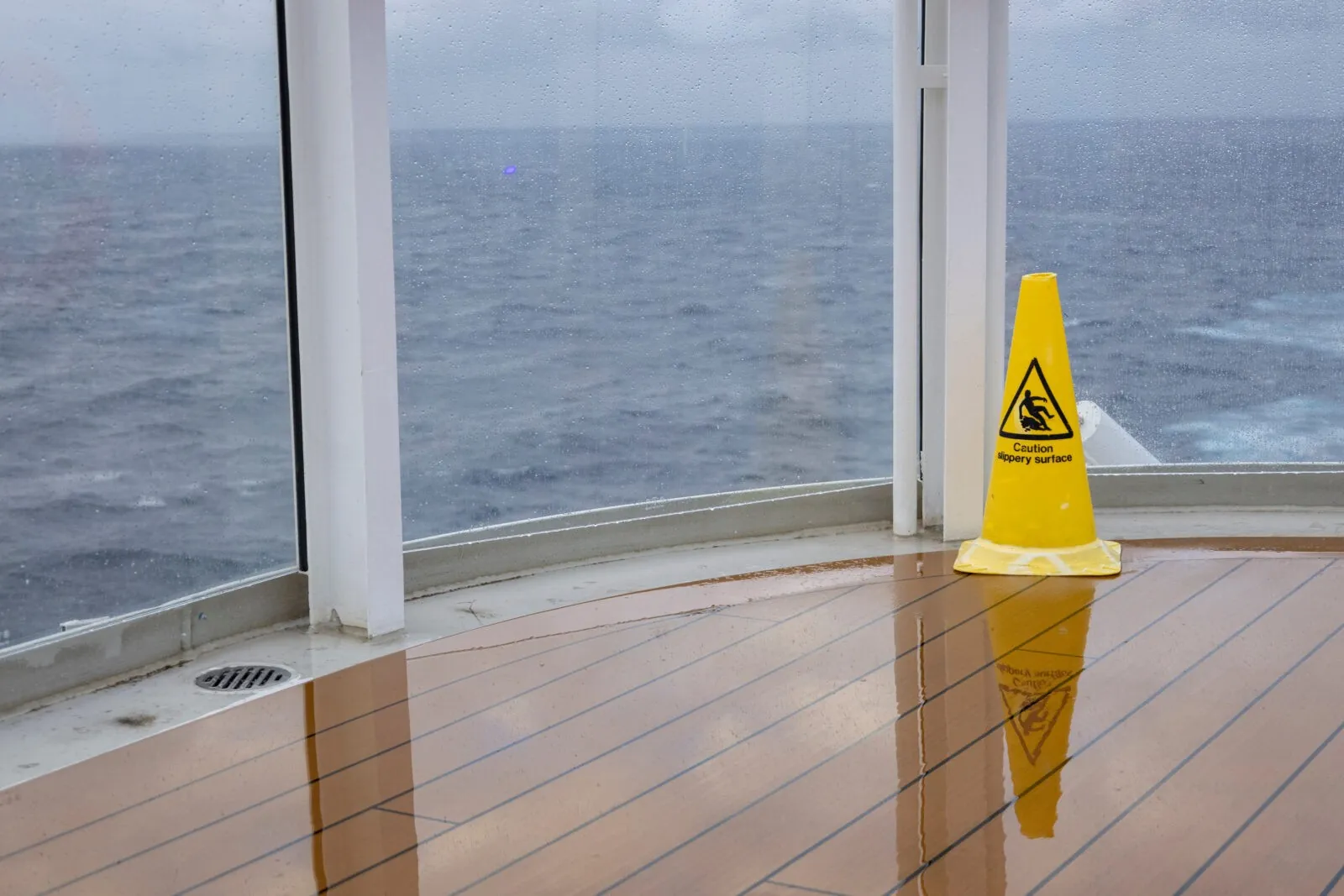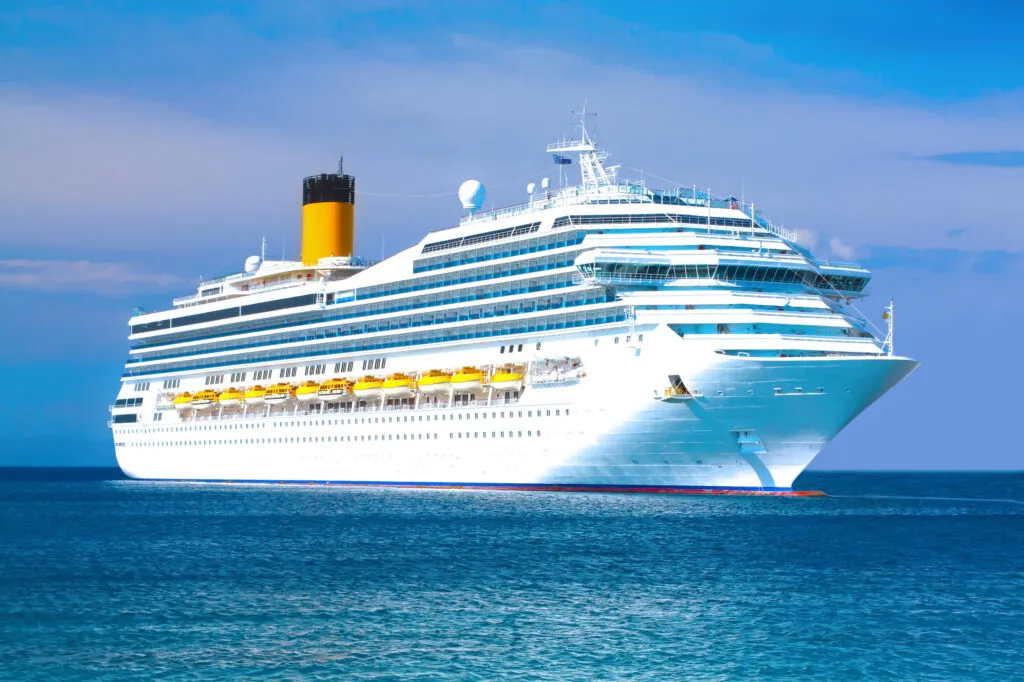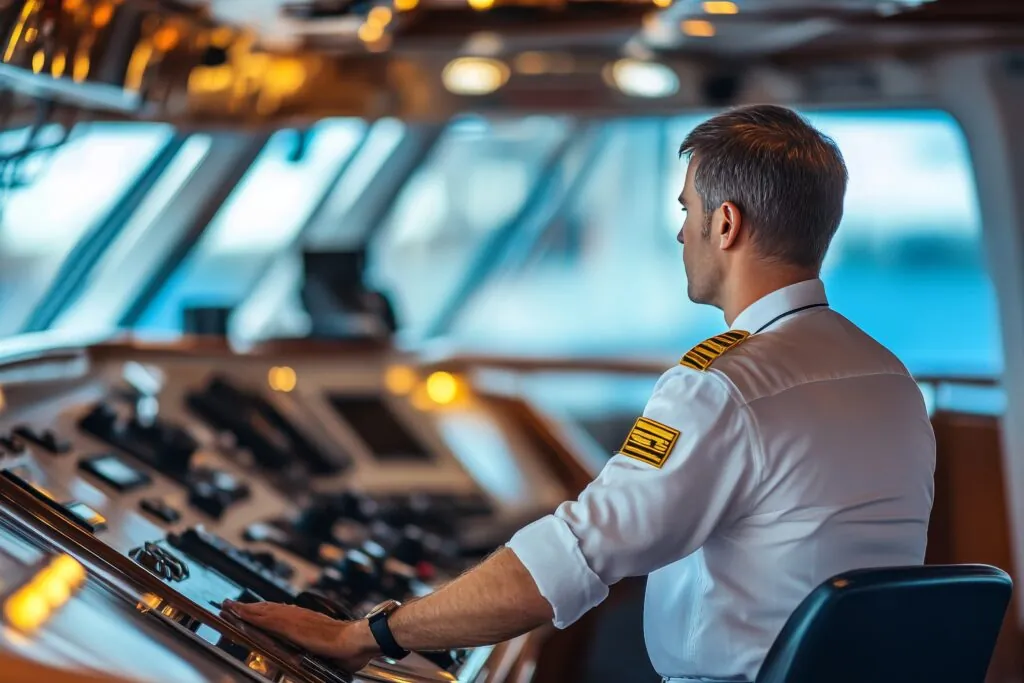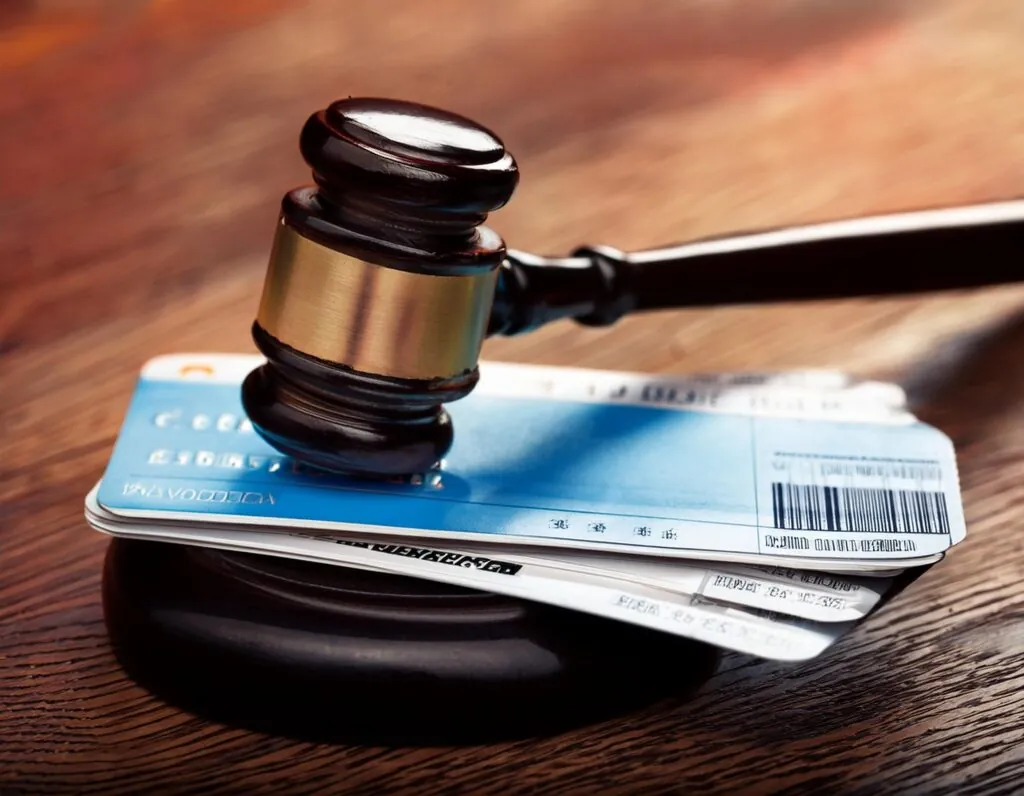Cruise ships are designed to offer luxury and entertainment, attracting millions of passengers each year. With amenities such as swimming pools, spas, restaurants, and thrilling excursions, cruise lines aim to provide a memorable vacation experience. However, accidents can and do happen, sometimes leading to severe injuries or even fatalities.
Accidents on cruise ships are often unexpected and can result from various causes, including slippery decks, poor maintenance, negligent security, food poisoning, or even medical malpractice. In addition to physical injuries, victims may also suffer emotional distress and financial losses, especially if they require ongoing medical treatment or are unable to work.
Legal claims related to cruise ship accidents are governed by maritime law, a unique set of regulations that differ from typical personal injury laws. As a passenger, understanding your rights and the cruise line’s liability can help you navigate the complexities of filing a personal injury claim. Maritime law establishes the duty of care that cruise lines owe their passengers, which includes maintaining a safe environment, providing adequate medical care, and ensuring security.
Why Is Understanding Cruise Ship Liability Important?
Cruise lines are multinational companies often registered in foreign countries, making legal claims more complicated due to jurisdictional issues. This complexity is compounded by the fact that most cruise tickets contain contractual clauses limiting the cruise line’s liability and specifying where lawsuits must be filed (commonly in Miami, Florida). Therefore, knowing your legal rights and how to navigate these contractual obligations is crucial for protecting your interests.
Common Causes of Cruise Ship Accidents
Cruise ship accidents are varied and can occur in different areas of the ship or during excursions. Understanding the common causes can help passengers take preventive measures and also assist in building a strong legal case should an accident occur.
1. Slip and Fall Accidents
Slip and fall incidents are the most common type of cruise ship accident. They often occur due to wet decks, uneven surfaces, inadequate lighting, or poorly maintained staircases. Cruise ships have multiple public areas, including pools, dining rooms, and promenades, where water or spilled drinks can create hazardous conditions.
These accidents can result in severe injuries, including:
- Broken bones or fractures
- Head trauma or concussions
- Spinal cord injuries leading to partial or complete paralysis
- Soft tissue injuries such as sprains and strains
Who is Liable?
Cruise lines have a duty of care to ensure passenger safety. If they fail to maintain safe conditions, adequately warn of hazards, or respond quickly to dangerous situations, they can be held liable for injuries. To prove liability, the injured party must demonstrate that the cruise line was aware (or should have been aware) of the dangerous condition and failed to address it.
2. Food Poisoning and Illness Outbreaks
Cruise ships serve thousands of meals each day, increasing the risk of food contamination or unsanitary kitchen practices. Outbreaks of foodborne illnesses, such as norovirus, are not uncommon and can spread rapidly in the confined quarters of a cruise ship. Symptoms may include severe stomach pain, vomiting, diarrhea, and dehydration.
Legal Responsibility
Cruise lines are responsible for maintaining high hygiene standards and ensuring food safety. This includes proper food storage, preparation, and handling to prevent contamination. Victims of food poisoning may be eligible for compensation for medical expenses, pain and suffering, and other related damages.
Proving Liability for Food Poisoning
To prove liability in a food poisoning case, passengers must show:
- They consumed contaminated food onboard the cruise ship.
- The food was prepared or served in an unsanitary manner.
- The illness was directly caused by the food served on the cruise ship.
Gathering evidence such as medical records, witness statements from other passengers who became ill, and food samples (if available) can strengthen the claim.
3. Medical Negligence on Cruise Ships
Medical facilities on cruise ships are often limited, and onboard medical staff may lack the necessary qualifications to handle serious injuries. Passengers rely on the ship’s medical team for emergency care, but negligence by doctors or nurses can worsen a passenger’s condition. This can include:
- Misdiagnoses leading to incorrect or delayed treatment
- Medication errors such as incorrect dosages or harmful drug interactions
- Lack of proper medical equipment or emergency procedures
- Failure to evacuate seriously injured passengers in a timely manner
Can You Sue for Medical Negligence?
Yes, if medical negligence on a cruise ship results in harm or worsens an injury, the cruise line may be held liable under maritime law. However, these cases can be complex due to the international nature of maritime regulations. Cruise lines often argue that their onboard medical staff are independent contractors, which can complicate liability claims.
Proving Medical Negligence
To prove medical negligence, passengers must demonstrate that:
- A doctor-patient relationship existed, establishing a duty of care.
- The medical staff breached this duty by providing substandard care.
- The breach directly caused injury or worsening of the condition.
- The passenger suffered damages as a result of the negligent care.
Collecting medical records, obtaining expert testimony from medical professionals, and preserving all communication with the ship’s medical team can be crucial in building a case.
4. Security Incidents and Personal Safety
Cruise ships are like floating cities, accommodating thousands of passengers and crew members. Unfortunately, this also means that security incidents such as theft, assault, or harassment can occur. These incidents are particularly concerning given the isolated nature of a cruise ship at sea.
Types of Security Incidents:
- Theft of personal belongings from cabins or public areas
- Assaults or harassment by other passengers or crew members
- Security breaches leading to unauthorized access to restricted areas
Legal Responsibility of Cruise Lines
Cruise lines are responsible for maintaining a safe environment and taking reasonable security measures to protect passengers. This includes installing surveillance cameras, hiring trained security personnel, and enforcing strict access controls to cabins and restricted areas.
Proving Negligence in Security Incidents
To prove negligence in security incidents, passengers must show that the cruise line:
- Failed to provide adequate security measures or personnel.
- Did not respond appropriately to known risks or previous incidents.
- Did not implement reasonable safety precautions to prevent foreseeable harm.
Victims of security incidents may be eligible for compensation for physical injuries, emotional distress, lost property, and other damages.
5. Excursion Accidents and Liability
Accidents during shore excursions are also common. These excursions, which may include activities such as snorkeling, zip-lining, or guided tours, are often organized by third-party vendors but marketed through the cruise line.
Common Excursion Accidents:
- Boating accidents or drownings during water-based activities
- Vehicle crashes during land tours
- Injuries from adventurous activities such as zip-lining, hiking, or parasailing
Who is Responsible for Excursion Accidents?
Liability for excursion accidents can be complicated. In many cases, cruise lines disclaim responsibility, arguing that third-party vendors are independent operators. However, if the cruise line failed to vet the safety standards of the vendor or misrepresented the excursion’s safety, they may still be held liable.
Proving Liability for Excursion Accidents
Passengers must show that:
- The cruise line promoted or endorsed the excursion.
- The cruise line failed to adequately investigate the safety standards of the vendor.
- The vendor’s negligence directly caused the injury.
This can involve obtaining contracts, promotional materials, witness statements, and safety inspection reports.
Cruise Ship Liability: Who is Responsible?
Understanding liability in cruise ship accidents is essential for determining who can be held legally responsible for injuries or damages. Maritime law, which governs incidents occurring on navigable waters, plays a crucial role in establishing the duty of care owed by cruise lines to their passengers.
Understanding Maritime Law
Maritime law, also known as admiralty law, is a specialized body of law that regulates maritime activities, including cruise ship accidents. It is unique because it involves international jurisdictions, complex regulations, and contractual clauses that passengers may not be aware of when purchasing tickets.
Under maritime law, cruise lines owe a duty of care to their passengers. This means they must provide a reasonably safe environment and take measures to prevent foreseeable risks. The standard of care required is often higher than that required by land-based businesses because cruise lines are responsible for passenger safety while at sea.
How Maritime Law Affects Cruise Ship Accident Claims
Maritime law governs where and how lawsuits can be filed against cruise lines. Most cruise lines include forum selection clauses in their ticket contracts, specifying the jurisdiction where legal claims must be filed, often in Miami, Florida. Additionally, maritime law imposes a short statute of limitations—usually one year from the date of the accident—to file a personal injury claim.
Proving Negligence in Cruise Ship Accidents
To hold a cruise line liable for an accident, the injured party must prove negligence by demonstrating the following:
- Duty of Care: The cruise line owed a duty of care to provide a safe environment.
- Breach of Duty: The cruise line breached that duty through action or inaction (e.g., failing to clean a spill or provide adequate security).
- Causation: The breach directly caused the passenger’s injury.
- Damages: The passenger suffered quantifiable damages, such as medical expenses, lost wages, or pain and suffering.
Cruise Ship Personal Injury Claims
Personal injury claims on cruise ships can arise from a variety of accidents, including slip and falls, food poisoning, medical negligence, and excursion-related injuries. Filing a personal injury claim involves a specific legal process governed by maritime law, making it essential to understand the requirements and deadlines.
What Qualifies as a Personal Injury on a Cruise?
Personal injury claims can arise from numerous situations on a cruise ship, including:
- Slip and fall incidents due to wet decks, uneven flooring, or poor lighting.
- Food poisoning from contaminated food or unsanitary kitchen practices.
- Medical malpractice by onboard doctors or nurses, including misdiagnoses or medication errors.
- Assault or security incidents involving crew members or other passengers.
- Accidents during excursions organized or promoted by the cruise line.
- Pool and spa accidents, including drowning, slips, or injuries from faulty equipment.
- Evacuation injuries during emergencies, such as collisions, fires, or mechanical failures.
How to File a Cruise Ship Personal Injury Claim
Filing a personal injury claim after a cruise ship accident requires a systematic approach to ensure that all legal requirements are met. Follow these steps:
- Report the Incident Immediately
Notify the ship’s security or medical staff and request a written incident report. Obtain a copy of this report as it serves as critical evidence. - Seek Medical Attention
Get medical care onboard or at the nearest port. Keep all medical records, including diagnosis, treatment, and receipts for medical expenses. This documentation is vital for proving the severity of your injury. - Gather Evidence
Collect as much evidence as possible, including:
- Photographs of the accident scene, injuries, and hazardous conditions.
- Witness statements from other passengers or crew members who saw the incident.
- Video footage from surveillance cameras, if available.
- Physical evidence such as defective equipment or clothing stained with hazardous substances.
- Consult a Maritime Lawyer
Due to the complexity of maritime law and the cruise line’s legal defenses, consulting a specialized lawyer is essential. An experienced cruise ship accident lawyer can evaluate your case, gather evidence, and negotiate with the cruise line’s legal team. - File a Lawsuit Within the Statute of Limitations
Maritime law typically imposes a one-year statute of limitations for filing a personal injury lawsuit against a cruise line. The lawsuit must be filed in the jurisdiction specified in the passenger ticket contract, often Miami, Florida.
Compensation for Cruise Ship Accidents
Victims of cruise ship accidents may be eligible for various types of compensation, depending on the severity of the injury and the impact on their lives. Understanding the types of compensation and the factors influencing the amount is crucial for pursuing a successful legal claim.
Types of Compensation Claims
Cruise ship accident victims may be eligible for the following types of compensation:
- Medical Expenses: Including emergency care, hospitalization, medication, rehabilitation, and future medical costs.
- Lost Wages and Loss of Earning Capacity: Compensation for missed workdays or permanent disability affecting earning potential.
- Pain and Suffering: Non-economic damages for physical pain, emotional distress, anxiety, and diminished quality of life.
- Emotional Distress: Compensation for mental anguish, including trauma from assault, harassment, or near-death experiences.
- Loss of Consortium: Compensation to family members for loss of companionship or support due to the victim’s injuries.
- Punitive Damages: Awarded in cases of gross negligence or intentional harm to punish the cruise line and deter similar conduct.
Factors Affecting Compensation Amounts
Several factors influence the amount of compensation awarded in cruise ship accident cases, including:
- Severity and permanence of the injury (e.g., temporary vs. permanent disability).
- Degree of negligence demonstrated by the cruise line or third-party vendors.
- Impact on the victim’s quality of life, including loss of enjoyment of activities.
- Jurisdiction and applicable maritime laws, which can vary by country or state.
- Contributory negligence if the injured party is partially at fault for the accident.
Why You Need a Cruise Ship Accident Lawyer
Maritime law is intricate, and cruise lines often have robust legal teams to defend against injury claims. Hiring a specialized cruise ship accident lawyer ensures:
- Proper evaluation of the validity of your claim.
- Expert navigation of complex maritime laws and jurisdictional challenges.
- Accurate calculation of compensation, including future medical expenses and lost earnings.
- Effective negotiation with the cruise line’s insurance and legal team.
- Representation in court if a fair settlement cannot be reached.
Contact The Cruise Injury Law Firm Today
If you or a loved one has been injured on a cruise ship, don’t navigate the complexities of maritime law alone. Contact The Cruise Injury Law Firm to evaluate your case, guide you through the legal process, and help you secure the compensation you deserve.
Maritime law is complicated, and cruise lines aggressively defend against personal injury claims. Securing legal representation is the best way to protect your rights and maximize your chances of a successful claim.




